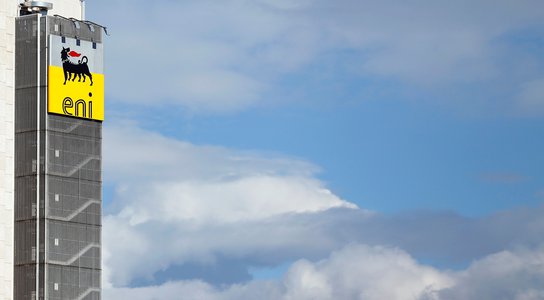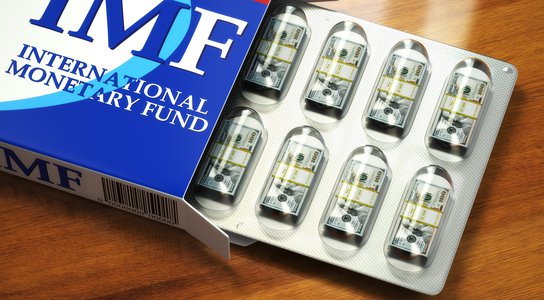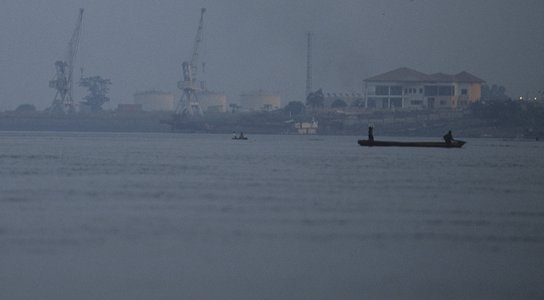Republic of Congo’s public debt could exceed $12.5 billion, adding over a third to estimates released by the IMF in July 2019 when it awarded the country its fourth multi-million dollar bailout, Global Witness reveals today.
Congo’s largest state-owned enterprise, its national oil company Société Nationale des Pétroles du Congo (SNPC), is carrying at least $2.7 billion in previously undisclosed liabilities to oil majors, including Total, Chevron and Eni, our analysis of its audited accounts shows. This represents a 50 per cent increase since 2010. A further $606 million is owed to a consortium of banks led by the pan-African conglomerate Ecobank, secured against oil.
SNPC’s accounts and a series of oil contracts were made public in 2018 and 2019 under the conditions of the IMF bailout. In addition to SNPC’s ballooning liabilities, the documents reveal millions of dollars in missing funds – major red flags for corruption.
SNPC’s debt could end up on the state’s books, to catastrophic effect. Congo has been in debt distress, meaning it cannot repay its creditors on the agreed terms and timeframe, since at least 2015. The country’s public debt peaked at 119% of GDP in 2016 and is now estimated at around 86% of GDP. This figure could in fact reach as much as 115% of GDP, if SNPC’s liabilities are taken into account.
With a balance sheet equivalent to almost fifty per cent of Congo’s GDP, SNPC is a key pillar of the country’s oil-dependent economy. Yet, the company barely broke even over the seven-year period from 2012 to 2018. It has been plagued by mismanagement and corruption since its incorporation in 1998. SNPC’s poor performance in part explains why Congo is getting so little in return for the sale of its oil – the dollar equivalent of just over two per cent of the country’s total oil production in 2017, according to the Extractive Industries Transparency Initiative (EITI).
“Our analysis raises serious questions about where Congo’s oil money has gone,” said Natasha White from Global Witness. “It portrays an oil sector skewed in favour of foreign oil companies, including Total, Chevron and Eni, and reveals major red flags for corruption. This warrants close scrutiny – particularly from the IMF, which is gearing up to issue another tranche of a bailout worth nearly half a billion dollars.”
Mismanagement and corruption in the oil sector, Congo’s primary source of state revenue, impact the poor the most. From 2015 to 2018, amid the country’s ongoing debt crisis, public spending dropped by well over 50 per cent, recent research shows. Citizens are going years without their pension payments and hospitals are chronically under-resourced. Meanwhile, the presidential family face investigation in France for their ill-gotten gains. Global Witness recently revealed how the President’s daughter and son, a former director of SNPC, seemingly laundered up to $70 million in stolen state funds. The country – Sub-Saharan Africa’s third largest oil producer – has one of the most unequal societies in the world.
SNPC’s liabilities to oil majors are primarily for operating costs that the companies are covering on its behalf, according to its accounts. However, our analysis reveals that the majors can recover an extensive range of costs, including salaries and pension contributions for employees, their medical, transport, telephone and accommodation fees, and their children’s school fees. Total’s predecessor Elf even managed to get a $50 million ‘signature bonus’ – a one-off signing fee and key source of oil revenue for the state – treated as one of these costs, and charged Congo five per cent interest on this so-called “loan.”
“Congo’s leaders have cut public spending in half since 2015 amid the country’s debt crisis, yet state representatives appear to have agreed to subsidise the business overheads of some of the largest oil companies in the world,” added White. “Congo’s officials must revisit and, where appropriate, renegotiate any outdated and unfair oil sector contracts, and submit all costs invoiced to SNPC to an independent public audit as a matter of urgency.”
SNPC’s accounts and EITI reports reveal a further $156 million in dividends that appear to have gone missing from 2016 to 2018 – money that should have been paid to the Congolese state, SNPC’s sole shareholder. The accounts also reveal that, at the end of 2018, SNPC was owed $1.18 billion – a sum that exceeds its annual turnover – by unidentified entities.
Finally, the accounts reveal that publicly-listed Italian oil major Eni may have written-off over $280 million in liabilities amid a licence renewal process that is the subject of a Milan corruption probe and recent Global Witness investigation. Our analysis raises further serious questions around those deals and the commercial justification for this apparent multi-million dollar write-off.
“Global Witness welcomes the publication of SNPC’s accounts and the oil sector contracts, which represents a major milestone in terms of oil sector transparency,” said White. “However, transparency is no end in itself, and the documents raise more questions than they answer. The IMF and Congo’s authorities must demand clarity from SNPC over the money it owes, the money it is owed and its missing millions.”
Read the full investigation here.
/ ENDS
Contacts
Notes to editor:
- We focus our analysis on the liabilities in SNPC’s accounts that the company will repay via oil or that is secured against oil. The company was carrying a further $643 million in debt in December 2018, which we do not explore. SNPC’s audited financial statements from 2012 to 2018 are published on the Congolese Ministry of Finance website: www.finances.gouv.cg/fr/documentation.
You might also like
-
Briefing The Spotlight Sharpens
Global Witness has exposed strong evidence of high-level corruption relating to four of Italian oil giant Eni’s licences in Republic of Congo.
-
Article Strings Attached
After almost two decades of broken promises, IMF must secure Congo oil sector transparency actions before any new bailout.
-
Briefing Rigged: where has Republic of Congo’s oil money gone?
Our analysis of previously hidden oil sector documents from Republic of Congo reveals major indicators of corruption and a sector skewed in favour of foreign oil companies, including Total, Chevron and Eni